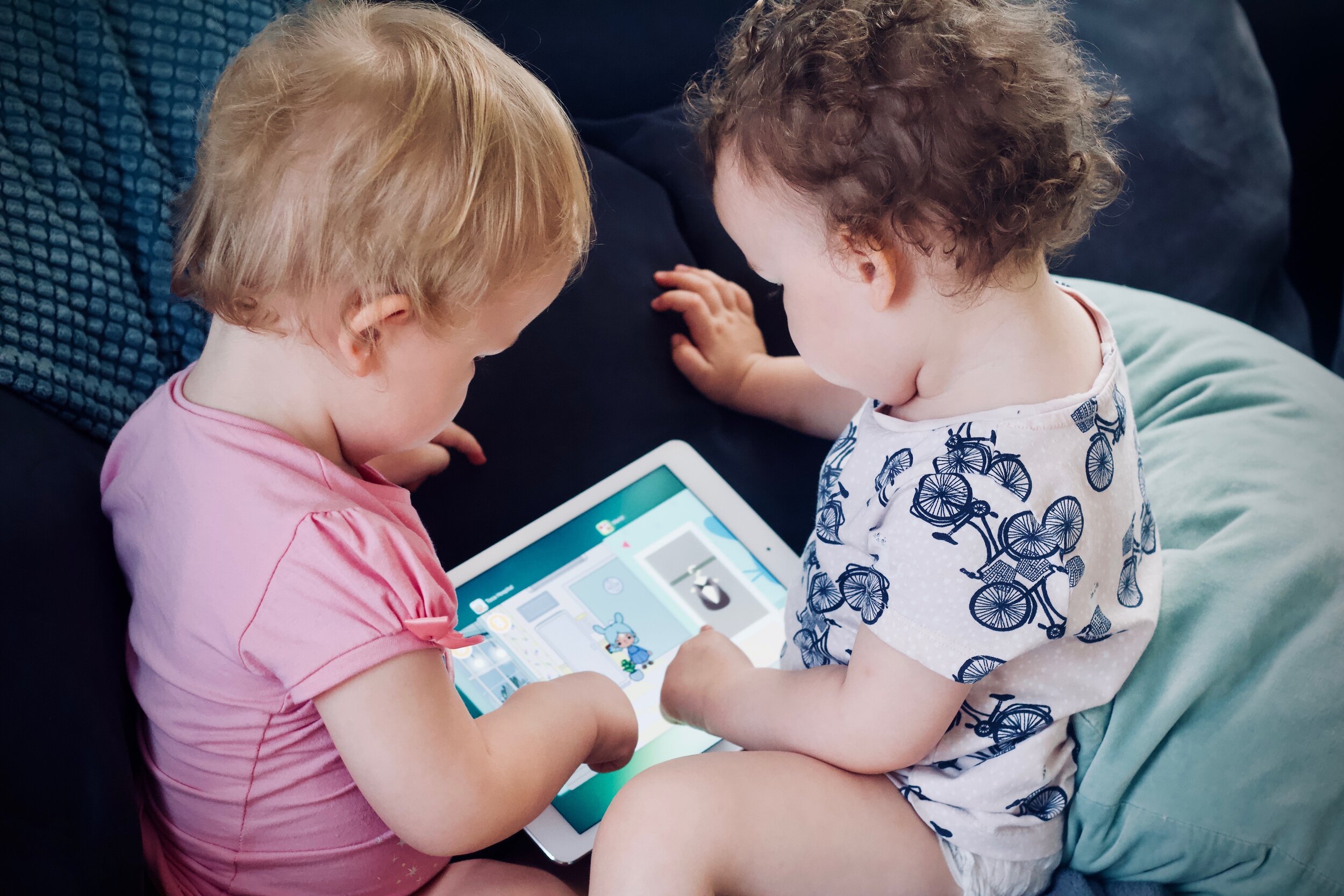Joséphine Vigouroux

Screens (TV, tablets, computers, smartphones) are everywhere in our lives, and our children are exposed to them at a very early age. Their effects on children's development are not insignificant. As parents and educators, it's very important to understand these effects so that we can use screens in a reasoned, controlled and beneficial way. Here are a few guidelines to help you better manage your child's screen time. For more information, we highly recommend reading the article "Screens and children "9 in Naître et Grandir.
Psychiatrist Serge Tisseron's3-6-9-12 programme is an essential tool, his guidelines are very clear, easy to adapt to our daily lives and he follows the evolution of children according to their age. Here is his advice for 3 to 6 year olds, and our comments and tips:
There's no magic number of hours per week that works for everyone, but limit screen time as much as possible, and organize it so that it's not a daily occurrence.
Kindergarten children do not have the capacity to step back and understand and deal with the images or scenes they see and the emotions that are triggered in them. Between the ages of 3 and 6, children should not watch television news, violent action series or films, or play violent video games.
Mealtime is both a time of education about food and a very important time of socialisation for children. The screen prevents the child from being aware of what he or she is eating, and also prevents the child from telling you about his or her day.
When your child is overwhelmed by his or her emotions, use the tips listed in the article "My child and his emotions" to help calm him or her down. Calming them down with a screen is a distraction and does nothing to help your child develop the ability to manage their emotions. We also advise you to avoid offering your child a screen to help him/her "wait", in the car, in the doctor's waiting room, in a restaurant Talk to your child about what you see, what you have done, what you are going to do and help him/her to find more enriching occupations that he/she can do alone (draw a picture, sing a song)
Human beings are relational, and children are structured to learn from their interactions. Two children sharing a tablet discuss what they are doing, learn about sharing and taking turns. A family movie on Sunday afternoon is an excellent opportunity to discuss what we see, talk about our childhood (share with them the movies you liked as a child), have a good time together.
If he is used to having the TV on in the mornings during breakfast, the first few days without it will probably be a bit difficult, but stick with it and you will see that he will soon adapt. Sometimes it may seem "easier" to use screens to channel our child, but what is really easier is to have a child who does not need a screen to be calm. Regulating screen time is an investment in your child's development and in your own comfort as well.
We've mainly talked about children's exposure to screens in this article, but time spent with your phone on or with the TV on also has an important influence on your child's development. Keep your smartphone away from you during mealtimes, evening rituals and playtime with your child. Be present with your child. The best way to educate our children to use screens wisely is to have one ourselves!
Paula Buswell